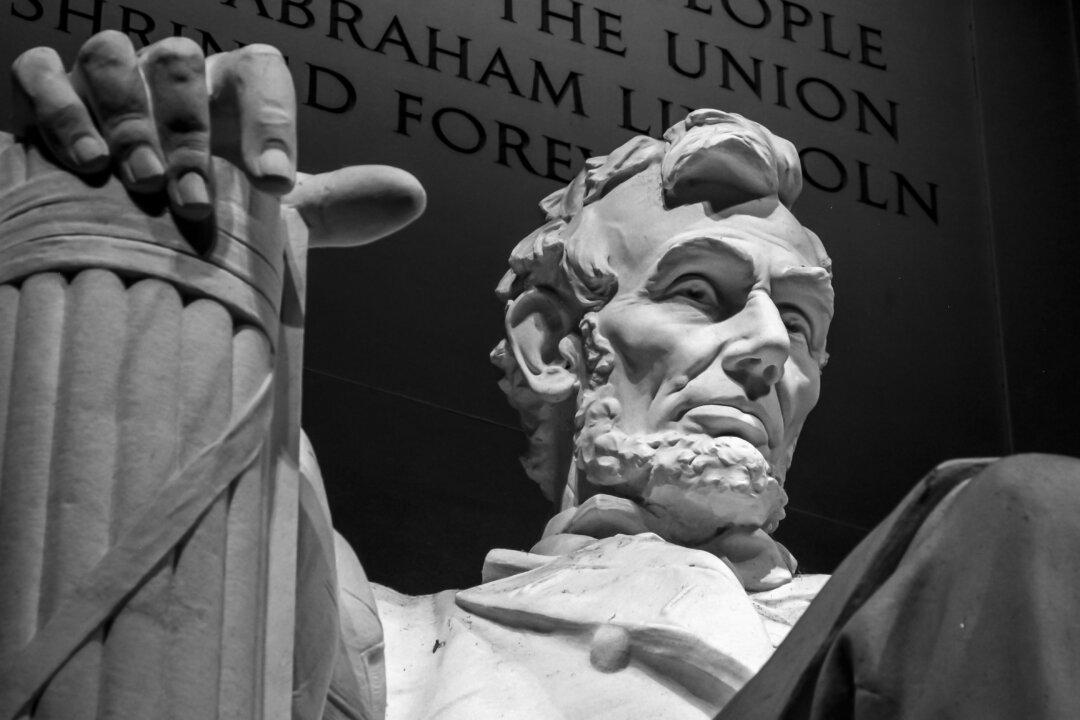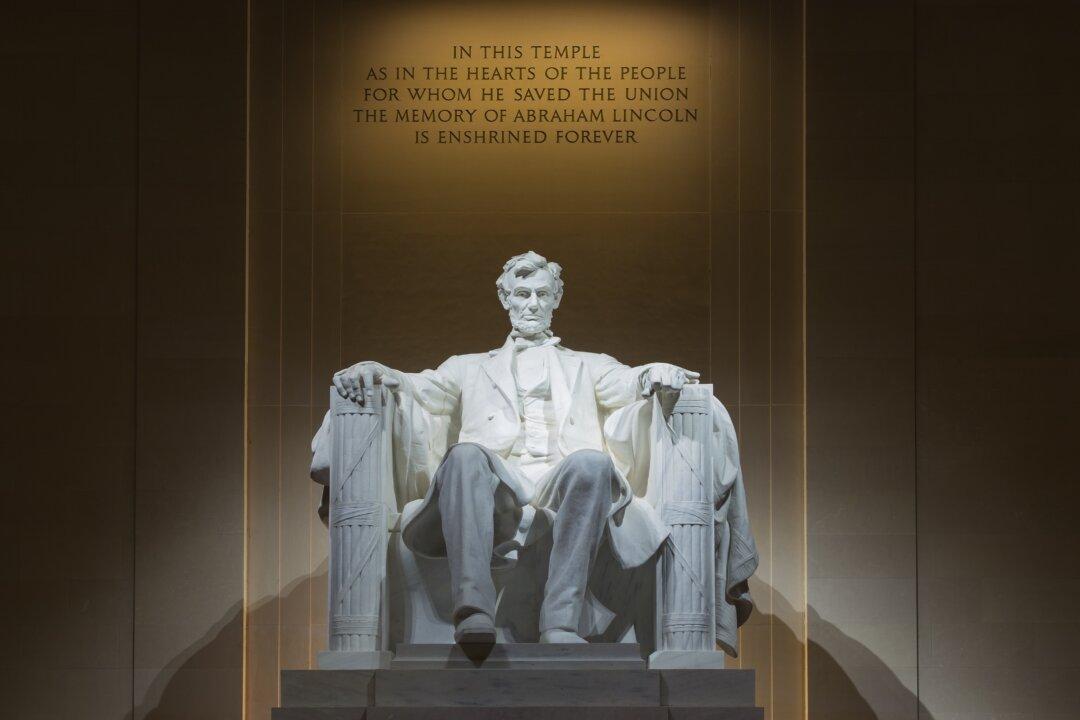Flexibility to Adapt to New Challenges
The dogmas of the quiet past, are inadequate to the stormy present. The occasion is piled high with difficulty, and we must rise with the occasion. As our case is new, so we must think anew, and act anew. We must disenthrall ourselves, and then we shall save our country.
—Message to Congress; December 1, 1862
The principles of Jefferson are the definitions and axioms of free society.... All honor to Jefferson to the man who, in the concrete pressure of a struggle for national independence by a single people, had the coolness, forecast, and capacity to introduce into a mere revolutionary document an abstract truth, applicable to all men and all times, and so to embalm it there that to-day and in all coming days it shall be a rebuke and a stumbling-block to the very harbingers of reappearing tyranny and oppression.
—Letter to H. L. Pierce & Others; April 6, 1859
What I do about slavery, and the colored race, I do because I believe it helps to save the Union; and what I forbear, I forbear because I do not believe it would help to save the Union ... I shall try to correct errors when shown to be errors; and I shall adopt new views so fast as they shall appear to be true views.
—Letter to Horace Greeley; August 22, 1862
The Single as Part of the Whole
It has been said that one bad general is better than two good ones, and the saying is true if taken to mean no more than that an army is better directed by a single mind, though inferior, than by two superior ones at variance and cross-purposes with each other.
—Message to Congress; December 3, 1861
I go for all sharing the privileges of the government, who assist in bearing its burdens.
—Letter to the Editor of the Sangamo Journal; June 13, 1836
Whatever I can I will do to protect you; meanwhile you must do your utmost to protect yourselves.
—Letter to Governor Murphy; April 27, 1864
The man of the highest moral cultivation, in spite of all which abstract principle can do, likes him whom he does know, much better than him whom he does not know. To correct the evils, great and small, which spring from want of sympathy, and from positive enmity, among strangers, as nations, or as individuals, is one of the highest functions of civilization.
—Address to the Wisconsin State Fair; September 30, 1859
And the same is true in all joint operations wherein those engaged can have none but a common end in view and can differ only as to the choice of means. In a storm at sea no one on board can wish the ship to sink, and yet not unfrequently all go down together because too many will direct and no single mind can be allowed to control.
—Message to Congress; December 3, 1861
Humility and Credit to Others
I must, in candor, say I do not think myself fit for the Presidency.
—Letter to T. J. Pickett; April 16, 1859
In telling this tale, I attempt no compliment to my own sagacity. I claim not to have controlled events, but confess plainly that events have controlled me. Now, at the end of three years’ struggle, the nation’s condition is not what either party, or any man, devised or expected. God alone can claim it. Whither it is tending seems plain. If God now wills the removal of a great wrong, and wills also that we of the North, as well as you of the South, shall pay fairly for our complicity in that wrong, impartial history will find therein new cause to attest and revere the justice and goodness of God.
—Letter to A. G. Hodges; April 4, 1864
Do not lean a hair’s breadth against your own feelings, or your judgment of the public service, on the idea of gratifying me.
—Letter to Maj. Gen. Meade; July 27, 1863
Calling to mind that we are in Baltimore, we cannot fail to note that the world moves. Looking upon these many people, assembled here, to serve, as they best may, the soldiers of the Union, it occurs at one that three years ago, the same soldiers could not so much as pass through Baltimore. The change from then till now, is both great, and gratifying. Blessings on the brave men who have wrought the change, and the fair women who strive to reward them for it.
—Address to the Sanitary Fair in Baltimore; April 18, 1864
Let me assure you that I decline to be a candidate for Congress, on my clear conviction, that my running would hurt, & not help the cause. I am willing to make any personal sacrifice, but I am not willing to do, what in my own judgment, is, a sacrifice of the cause itself.
—Letter to Rev. J. M. Sturtevant; September 27, 1856
(To be continued...)




